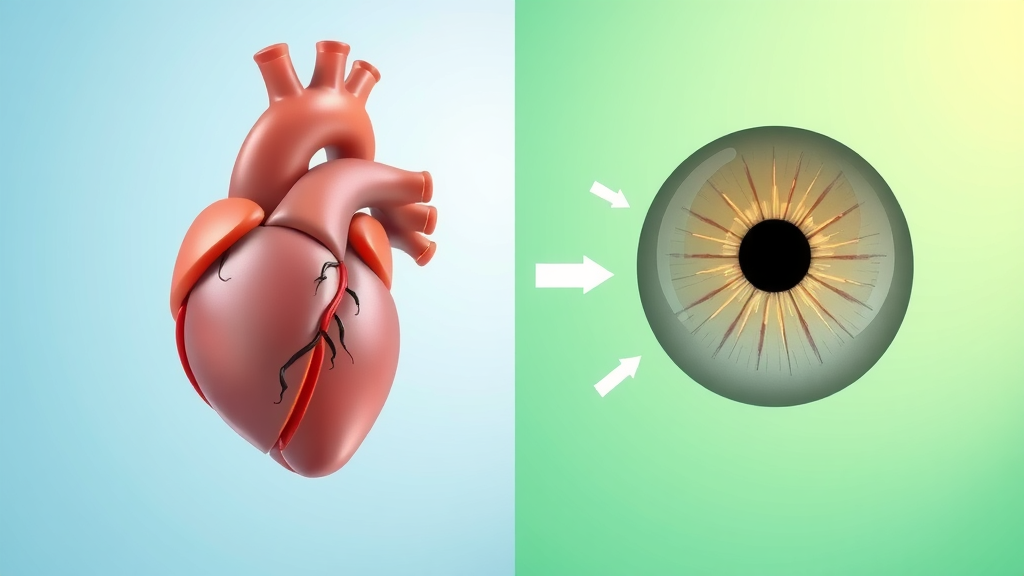Did you know? Every 10 minutes, someone is added to the organ transplant waiting list in the United States, and over 3,000 North Carolinians are currently awaiting lifesaving organ and tissue donations. If you’ve ever wondered how to become an organ donor in NC, you’re not just making a personal choice—you’re joining thousands in North Carolina who support life through organ donation and tissue donation.
This guide will walk you through everything you need to know to join the growing network of generous North Carolinians turning hope into reality.

Why How to Become Organ Donor in NC Matters: Impactful Statistics on Organ Donation and Lives Saved
"Every eligible donor has the power to save up to eight lives and enhance many more through tissue donation." — Donate Life NC
When you choose to become an organ donor in North Carolina, your life-saving decision supports the Donate Life NC mission and positively impacts countless lives in your community and beyond. Each organ donor can save up to eight lives and help up to 75 others through tissue donation. According to the Donate Life NC, thousands are on the waiting list, hoping for a second chance at life. Sadly, the gap persists: in the United States, on average, 17 people die each day waiting for an organ. Not only does stepping forward provide hope to these individuals, but North Carolina’s robust donor network is a model for others—thanks to people just like you.
Registering to donate through Donate Life NC or the North Carolina DMV is simple but vital for expanding the state’s organ and tissue donor registry. More than half of all North Carolina residents are listed in the donor registry, yet the need for lifesaving organ and tissue donation remains urgent. If every eligible resident chose to register to donate, countless more lives could be saved. This is your opportunity to become a part of North Carolina’s legacy of generosity and hope.

Understanding the broader healthcare landscape in North Carolina can also shed light on why organ donation is so vital, especially in rural communities where access to medical resources may be limited. For a deeper look at how healthcare programs impact these areas, explore the economic importance of Medicaid in rural NC and its role in supporting community health.
Understanding Organ Donation in North Carolina: Key Facts and Misconceptions
Definition of organ donation and tissue donation: Organ donation is the voluntary giving of bodily organs (like heart, liver, kidneys), while tissue donation covers corneas, skin, bone, and more.
Overview of the organ and tissue donation process in North Carolina: Organ donation typically involves registering with the official online donor registry via Donate Life NC or at the North Carolina DMV, documenting your consent, and undergoing medical suitability evaluation at the time of donation.
Common myths vs. facts: A main myth is that medical care will be compromised if you’re a registered donor. This is false—your care comes first, always. Another misconception is that age or health issues automatically disqualify you. In reality, most people are eligible as organ donors or tissue donors.
Local support from Donate Life NC and related organizations: Numerous organizations, including Donate Life NC, the United Network for Organ Sharing, and local transplant centers, provide guidance, support, and education about organ and tissue donation.
Eligibility Requirements: Who Can Become an Organ Donor in North Carolina?
General requirements for organ donor and tissue donor registration: Most healthy adults can become donors. Age limits are broad; in many cases, minors (with parental consent) and seniors are welcome.
Life NC guidelines and eligibility factors: Donate Life NC encourages everyone to register. Certain medical conditions or legal restrictions apply, but final eligibility is determined by transplant professionals.
Medical, legal, and age-related considerations: Some illnesses like active cancer or severe infections may disqualify organ donation, but individuals might still be eligible for tissue donation. Legal requirements follow state and federal guidelines to protect both donors and recipients.

Step-by-Step: How to Become Organ Donor in NC
Visit the official Donate Life NC website or local DMV: The quickest way to start your organ donor registration is online through Donate Life NC, North Carolina’s official portal dedicated to organ and tissue donation. Or, visit your local DMV office and look for the donate life sign-up options.
Complete donor registration (online or in person): Whether you’re doing this online, at a motor vehicle office, or during a community event, the form is straightforward—typically requiring your name, contact information, and consent.
Consent and documentation for organ and tissue donation: You’ll confirm what you want to donate (organs, tissues, or both). Once registered, your status is securely maintained in the donor registry.
How to update your organ donor status: Visit the Donate Life NC website anytime to update your organ and tissue donor preferences, or make changes when renewing your driver’s license—look for the heart symbol on your license indicating you’re a registered donor.
Notifying family of your decision: Let your loved ones know you’re registered as an organ donor. Open discussions ensure your wishes are honored and supported in the event of an emergency.
Choosing Between Organ Donor and Tissue Donor Registration in North Carolina
Difference between organ donation and tissue donation: Organ donation may include heart, lungs, kidneys, and liver, used for transplants. Tissue donation refers to giving corneas, skin, bone, tendons, and more, often used for healing injuries, burns, and restoring sight.
Which option suits you best? Most choose both, but you can specify if you prefer to be an organ donor, a tissue donor, or both. The registry respects your selection.
Registered donor choices: organs and tissue: You can manage your preferences online at any time—whether to include organs and tissue, just one or the other, or change your choices as your wishes develop.

Register to Donate: Immediate Steps for Donor Registration in North Carolina
Using the NC DMV for organ donor registration: When obtaining or renewing your driver’s license at the motor vehicle office, just check the box to add the internationally recognized ‘heart’ icon. This instantly adds you to the NC donor registry.
Registering via Donate Life NC portal: For the fastest and easiest online donor registration, visit Donate Life NC’s official website. Fill out the secure form—your status updates in real-time and you get confirmation immediately.
Mobile and community events for registration: Look out for Donate Life NC events at fairs, healthcare centers, or college campuses to register as an organ donor and learn more about tissue donation in North Carolina. Volunteers help guide you through instant registration and answer questions about organ donation in your community.
What Happens After Donor Registration in North Carolina?
Confirmation and documentation for how to become organ donor in NC: After registering through Donate Life NC, you’ll receive digital or physical confirmation—your North Carolina driver’s license will display a heart symbol, or you’ll get an email from the donor registry confirming your organ and tissue donor status.
How your donor status is used in emergencies: Should a critical event happen, medical professionals check the NC donor registry. Your recorded wishes are followed and your family will be approached with care and respect.
The process after a donor passes away: A medical assessment ensures suitability for donation. If you’re eligible, the transplant center and Donate Life NC coordinate with the United Network for Organ Sharing to match recipients, saving lives both in North Carolina and across the nation.

People Also Ask About How to Become Organ Donor in NC
What disqualifies you from donating an organ?
Certain conditions such as active cancer, severe infections, or specific chronic illnesses may disqualify someone from organ donation. However, most people can still be tissue donors or donate under different circumstances. Each case is reviewed individually by medical professionals.
How do you become an organ donor in North Carolina?
To become an organ donor in North Carolina, you can register online through the Donate Life NC website, sign up at the DMV, or participate in donor registration drives. The process is simple and only takes a few minutes.
How much do organ donors get paid?
Organ donation is strictly voluntary in the United States. By law, donors and their families do not receive payment for organs or tissue, ensuring that the process remains ethical and focused on saving lives.
What is the 90 minute rule for organ donation?
The '90 minute rule' refers to a guideline where, after circulatory death, organs must be recovered within approximately 90 minutes to remain viable for transplantation. This process is coordinated by medical and transplant teams to ensure success.

Table: Quick Comparison of Organ Donor and Tissue Donor Registration in North Carolina
Aspect |
Organ Donor |
Tissue Donor |
|---|---|---|
Eligibility |
Most healthy adults |
Almost everyone |
Registration Process |
DMV, Donate Life NC, events |
Same as organ donor |
Organs/Tissues Included |
Heart, kidney, liver, etc. |
Cornea, skin, bone, etc. |
Aftercare |
Medical assessment |
Special handling procedures |
Top Benefits When You Learn How to Become Organ Donor in NC
Directly save or improve up to 75 lives
Support your local community through organ and tissue donation
Personal fulfillment and legacy impact
Strengthen North Carolina’s donor network with Donate Life NC

FAQs: How to Become Organ Donor in NC
Can family override my donor decision in North Carolina?
No. In North Carolina, your donor registration is legally binding. Family may be consulted, but your documented decision stands as your directive.Will organ donation affect my medical care?
Absolutely not. Medical teams focus on saving your life first—organ donation is only considered after all life-saving efforts have been exhausted.Can minors register to donate in NC?
Yes, minors (typically 16–17) can register as organ donors when applying for a driver’s license, but parental consent is required to make the decision final if under 18.
Conclusion: Take the First Step and Save a Life Today with How to Become Organ Donor in NC
By learning how to become an organ donor in NC and registering with Donate Life NC, you contribute to a vital cause that brings hope, healing, and life to thousands across North Carolina through organ and tissue donation. Take action now—register today and be a hero in your North Carolina community.
If you’re inspired to make a difference through organ donation, consider how your actions fit into the larger tapestry of community wellness in North Carolina. From supporting local health initiatives to exploring the unique culture of our state, there are countless ways to get involved and stay informed.
For those interested in discovering more about North Carolina’s vibrant communities and hidden gems, take a moment to explore the state’s indie bookstores—a perfect way to connect with local stories and deepen your impact beyond health. Every step you take, whether registering as a donor or supporting local businesses, helps build a stronger, more compassionate North Carolina for all.
Sources
To become an organ donor in North Carolina, you can register through the state’s official donor registry managed by Donate Life NC. This can be done online at Donate Life NC or in person at your local Department of Motor Vehicles (DMV) office. When obtaining or renewing your driver’s license or ID card, you will be asked if you wish to register as an organ donor. If you consent, a red heart symbol will be added to your license, indicating your decision. (donatelifenc.org)
It’s important to inform your family about your decision to ensure your wishes are honored. In North Carolina, your registration is legally binding, meaning your family cannot override your decision if you are 18 or older. (donatelifenc.org)
By registering as an organ donor, you have the potential to save up to eight lives and enhance many more through tissue donation. Every 10 minutes, someone is added to the organ transplant waiting list in the United States, and over 3,000 North Carolinians are currently awaiting lifesaving organ and tissue donations. (donatelifenc.org)
For more information on organ donation and to register, visit Donate Life NC.
 Add Row
Add Row  Add
Add 




Write A Comment